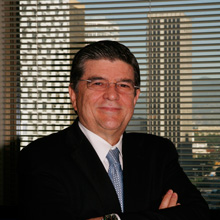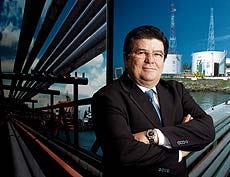When Sergio Machado joined politics in 1986, he gave up all his former titles. Sergio owned Vilejack jeans factory and a school, was the president of Ceará Industrial Center (CIC), owned TV Jangadeiro (SBT network), Fortaleza, and the FM Radio Education of Crateús (EC) but gave up all and moved business to his children. For him, politics was an ‘exclusive lover’ which demanded his full attention.
Machado was 16 when he accompanied his father in exile in France. This was the time when he learnt the most intellectual lesson of his life. Sergio Machado learnt from his father that power was transient. His inclination towards politics was always very strong. Machado studied administration at the Getulio Vargas Foundation in Rio and participated in the student movement and the march of 100,000 in 1968.
In his political career, he never took handouts but earned his way up. The CIC group had Tasso Jereissati as protagonist and entered politics with a modern discourse, in contrast to the existing policy of the State Colonels. Machado became Interior Minister in the first term of Tasso, but it turned away when Ciro Gomes occupied space in the party, chosen as candidate for governor of Ceará. Machado continued in the PSDB and was elected congressman in 1990. Four years later competed in and won election to the Senate.
Being the man responsible for resuscitating Brazilian Naval Industry, Jose Sergio de Oliveira Machado rarely used to go out of Transpetro before 23 hours. He would work religiously and was often sighted having his lunch in the evening, spending all afternoon handling the tasks
No wonder, Machado made the cover of British magazine ‘Fairplay’ under the ‘Virtual Reality’ title. He also appeared on the list of 100 most powerful person of the ship industry. He was placed 65th, just behind the president of Vale, Roger Agnelli and 16 positions ahead of Eike Batista.
Machado was 16 when he accompanied his father in exile in France. This was the time when he learnt the most intellectual lesson of his life. Sergio Machado learnt from his father that power was transient. His inclination towards politics was always very strong. Machado studied administration at the Getulio Vargas Foundation in Rio and participated in the student movement and the march of 100,000 in 1968.
In his political career, he never took handouts but earned his way up. The CIC group had Tasso Jereissati as protagonist and entered politics with a modern discourse, in contrast to the existing policy of the State Colonels. Machado became Interior Minister in the first term of Tasso, but it turned away when Ciro Gomes occupied space in the party, chosen as candidate for governor of Ceará. Machado continued in the PSDB and was elected congressman in 1990. Four years later competed in and won election to the Senate.
Being the man responsible for resuscitating Brazilian Naval Industry, Jose Sergio de Oliveira Machado rarely used to go out of Transpetro before 23 hours. He would work religiously and was often sighted having his lunch in the evening, spending all afternoon handling the tasks
No wonder, Machado made the cover of British magazine ‘Fairplay’ under the ‘Virtual Reality’ title. He also appeared on the list of 100 most powerful person of the ship industry. He was placed 65th, just behind the president of Vale, Roger Agnelli and 16 positions ahead of Eike Batista.

